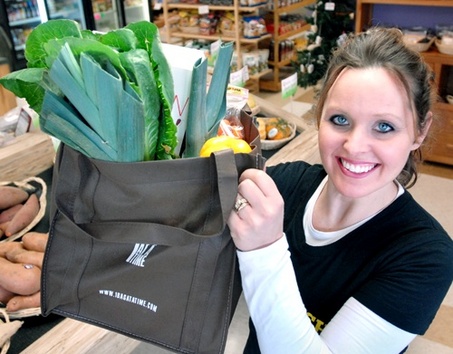It’s Groundhog Day again for the Brits who once again have a report that public health types were too clueless about their jobs so a whole bunch of  people became unnecessarily sick with E. coli O157.
people became unnecessarily sick with E. coli O157.
Scotland, 1996. Wales, 2005. Now this. At least Prof. Hugh Pennington didn’t have to do the same report again.
Don’t eat poop, and if you do, make sure it’s cooked.
Raw animal feces usually are not cooked when children go play with them at petting zoos.
A report into Britain’s largest outbreak of E. coli O157 at an open farm last year concluded it could have been avoided if visitors had been kept away from animal feces.
Duh.
The outbreak, which affected 93 people mostly children, was made worse by the slow reaction of health authorities before the petting farm in Surrey was closed, the investigation found.
Only 33 people would have fallen victim to the infection had authorities acted sooner, it said.
Eight of the children infected required dialysis and some have been left with permanent kidney damage. At one point during the outbreak last August and September victims were occupying all the children’s acute renal support services in London.
A number of families of affected children are preparing to take legal action against the farm.
In a 250-page report, the investigation said an outbreak control team of officials from local councils, medical authorities and the Health Protection Agency (HPA) had convened "exceptionally late."
 It made 43 recommendations but said it did not want to ban petting farms. It said there should be a code of practice to ensure farms kept visitors away from animal fecal matter.
It made 43 recommendations but said it did not want to ban petting farms. It said there should be a code of practice to ensure farms kept visitors away from animal fecal matter.
In addition it said the public should be educated about the dangers of E.coli O157 and how its risks could be minimized by careful handwashing, particularly for young children.
No, no one wants to be educated, especially in British schools. But some of the government agencies and food providers could provide compelling and current, food safety information rather than the piping hot bullshit currently coming out of the U.K. Food Standards Agency and others who appear delusional about what can happen.
Again:
Eight of the children infected required dialysis and some have been left with permanent kidney damage. At one point during the outbreak last August and September victims were occupying all the children’s acute renal support services in London.
Professor George Griffin, who led the investigation, said,
"This outbreak could very likely have been avoided if more attention had been given to preventing visitors being exposed to animal fecal matter. Once it had started, there is no doubt that even with prompt action this would have been .jpg) a big outbreak. Nevertheless there was a lack of public health leadership by the Health Protection Agency and a missed opportunity to exercise decisive public health action and thereby restrict the size of the outbreak."
a big outbreak. Nevertheless there was a lack of public health leadership by the Health Protection Agency and a missed opportunity to exercise decisive public health action and thereby restrict the size of the outbreak."

 complain about threats to their food safety,"
complain about threats to their food safety,".jpg) by food poisoning.
by food poisoning..jpg) • information sharing between the school and the health authorities was poor;
• information sharing between the school and the health authorities was poor; And prudence before plastic pushers.
And prudence before plastic pushers..jpg) ear’s petting zoo outbreak of E. coli O157:H7 came out this morning.
ear’s petting zoo outbreak of E. coli O157:H7 came out this morning. 
 people became unnecessarily sick with E. coli O157.
people became unnecessarily sick with E. coli O157. It made 43 recommendations but said it did not want to ban petting farms. It said there should be a code of practice to ensure farms kept visitors away from animal fecal matter.
It made 43 recommendations but said it did not want to ban petting farms. It said there should be a code of practice to ensure farms kept visitors away from animal fecal matter..jpg) a big outbreak. Nevertheless there was a lack of public health leadership by the Health Protection Agency and a missed opportunity to exercise decisive public health action and thereby restrict the size of the outbreak."
a big outbreak. Nevertheless there was a lack of public health leadership by the Health Protection Agency and a missed opportunity to exercise decisive public health action and thereby restrict the size of the outbreak." The week was a success; not only did we get some Vitamin D, neither of us had any foodborne illness symptoms.
The week was a success; not only did we get some Vitamin D, neither of us had any foodborne illness symptoms.